Critical Thinking Normal Governance and Civics Worksheets for Ages 3-8
6 filtered results
-
From - To
Welcome to our "Critical Thinking Normal Governance and Civics Worksheets" for young learners aged 3-8! These engaging worksheets are designed to foster essential critical thinking skills while introducing foundational concepts of governance and civics. Children will explore topics like community roles, rights, and responsibilities through fun, age-appropriate activities. Our carefully crafted resources encourage curiosity and promote interactive learning, making complex ideas accessible for little minds. Stimulate your child’s cognitive development as they navigate through puzzles, scenarios, and discussions that cultivate their understanding of society and civic participation. Perfect for home or classroom use, these worksheets inspire thoughtful reflection and active engagement!
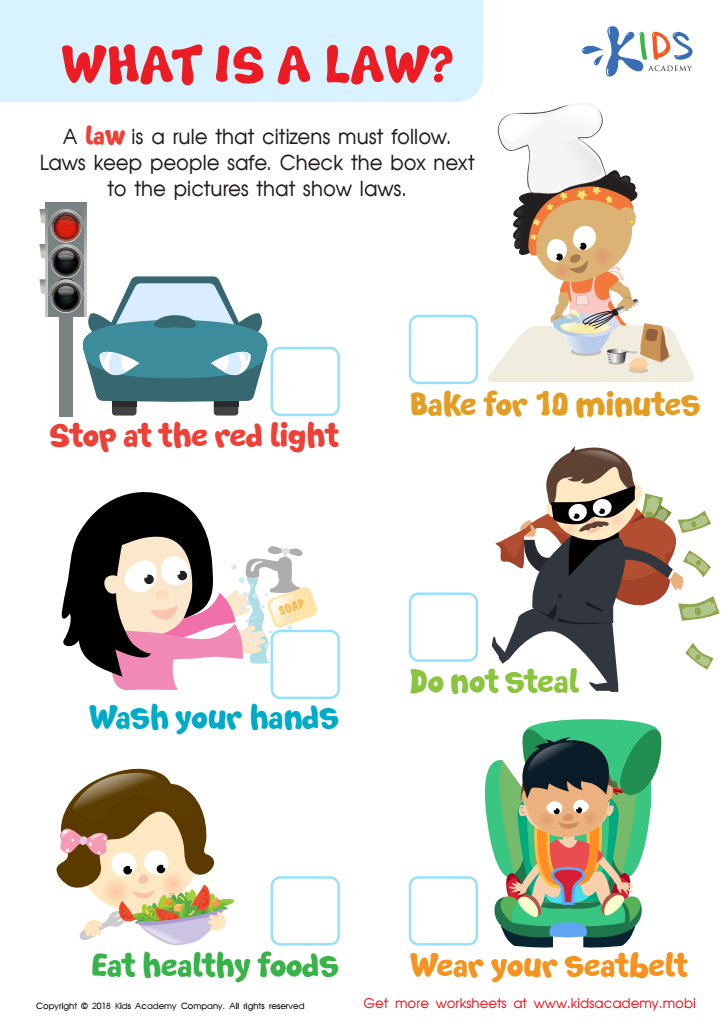

What is a Law? Worksheet
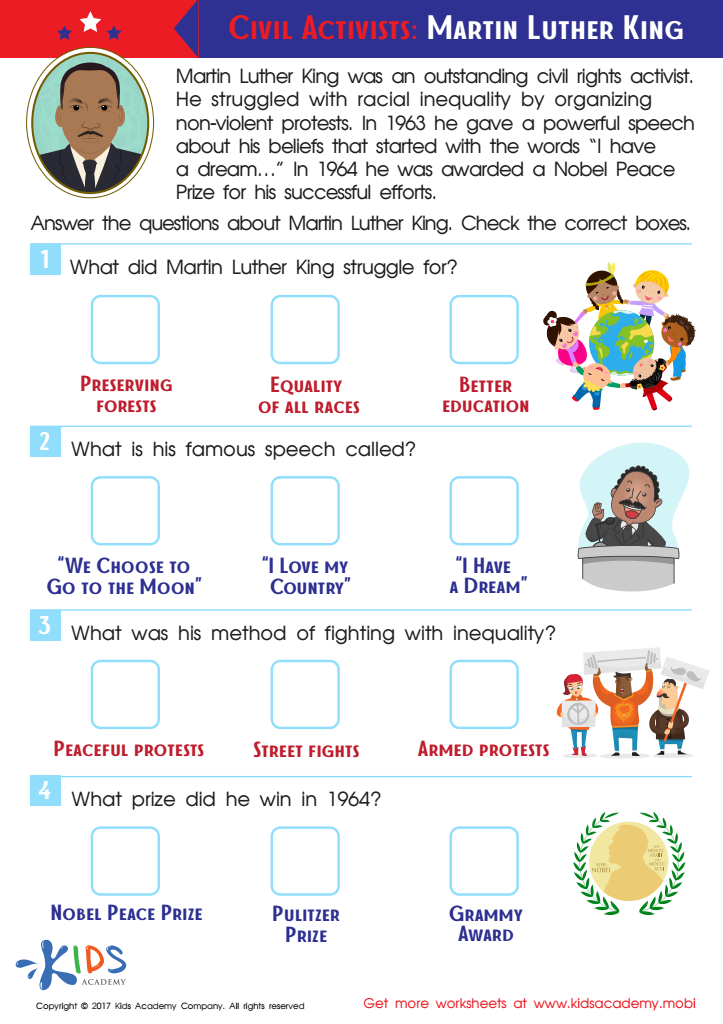

Martin Luther King Worksheet
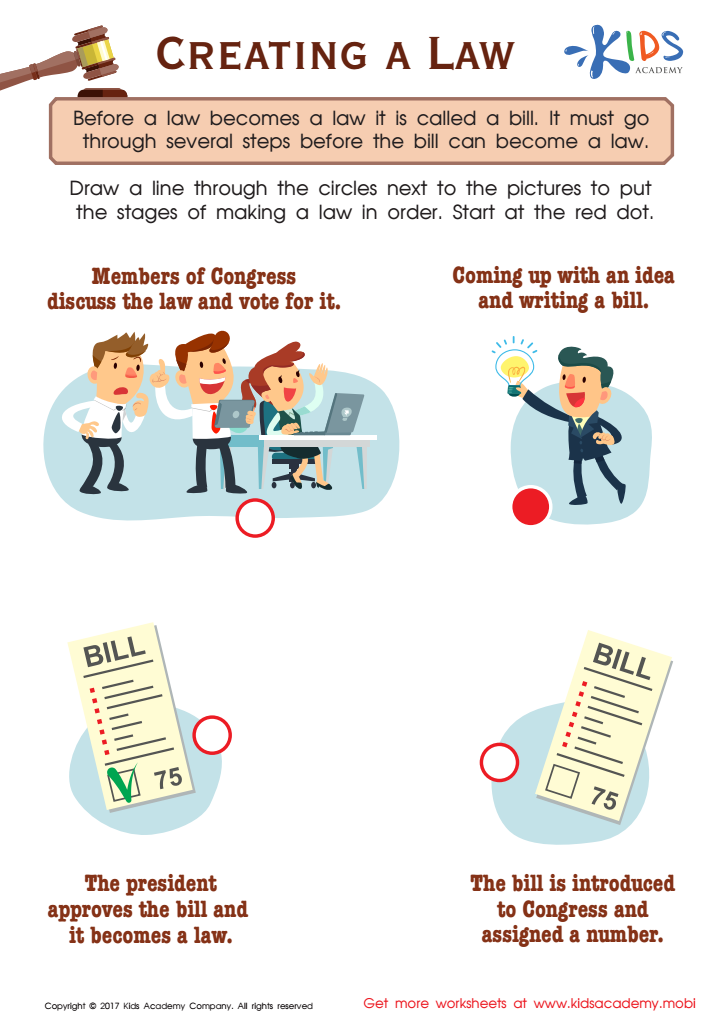

Creating a Law Worksheet
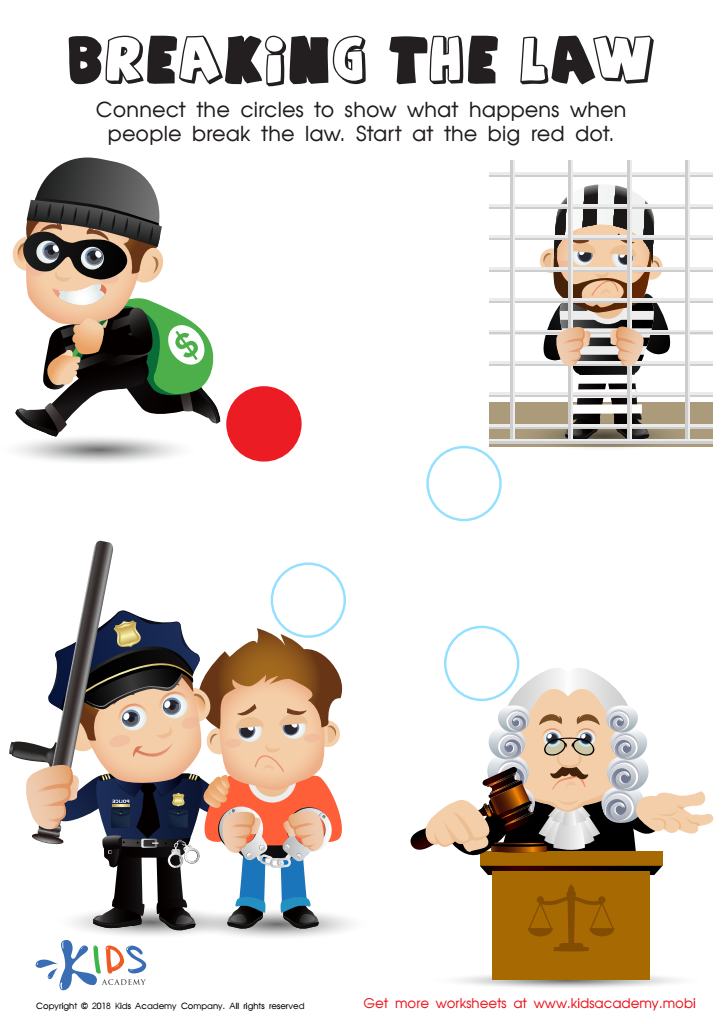

Breaking the Law Worksheet
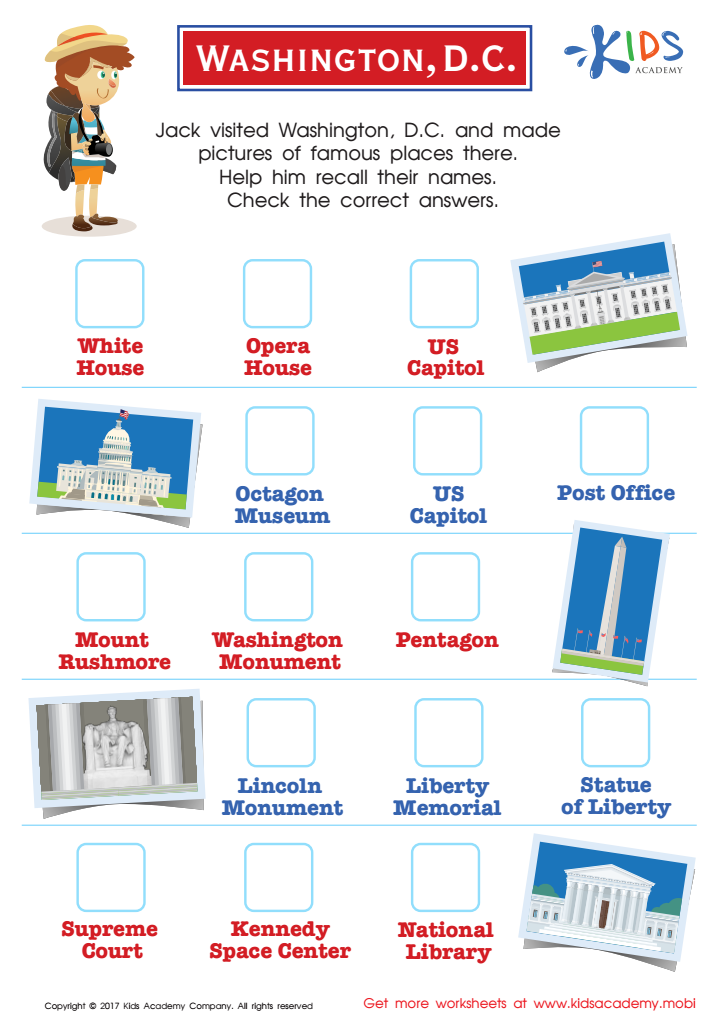

Washington D.C. Printable Worksheet
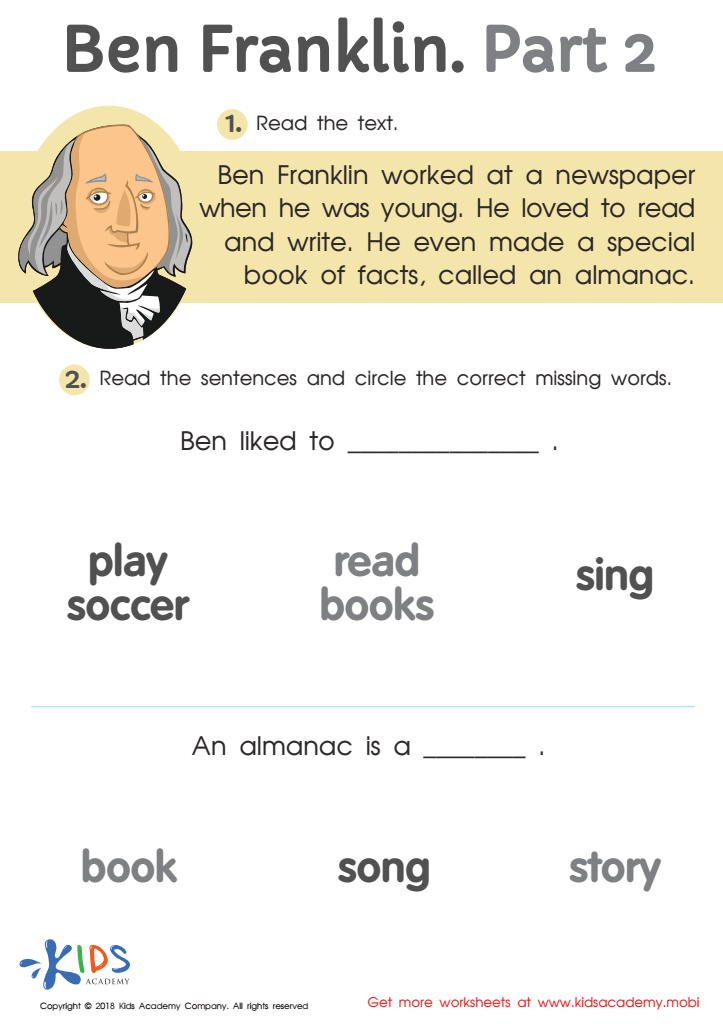

Ben Franklin Part 2 Worksheet
Critical thinking and civic engagement are essential skills that parents and teachers should prioritize for children ages 3-8. At this developmental stage, children are naturally curious and eager to learn about the world around them. Introducing concepts of governance and civics fosters an understanding of their role in the community and the importance of active participation in society.
Teaching critical thinking skills at a young age helps children analyze information, ask questions, and evaluate different perspectives. This empowers them to become thoughtful decision-makers rather than passive consumers of information. Furthermore, instilling civics education nurtures a sense of responsibility and belonging, encouraging children to appreciate diversity and recognize the value of cooperation and respect in their interactions.
Promoting these skills also contributes to building informed and engaged future citizens. As these children grow, they will be better equipped to handle complex social issues, contribute to discussions, and understand how local and national governance impacts their lives. Overall, by integrating critical thinking and civics into early education, parents and teachers play a vital role in shaping responsible, empathetic, and knowledgeable individuals who can positively influence their communities and beyond.
 Assign to My Students
Assign to My Students









